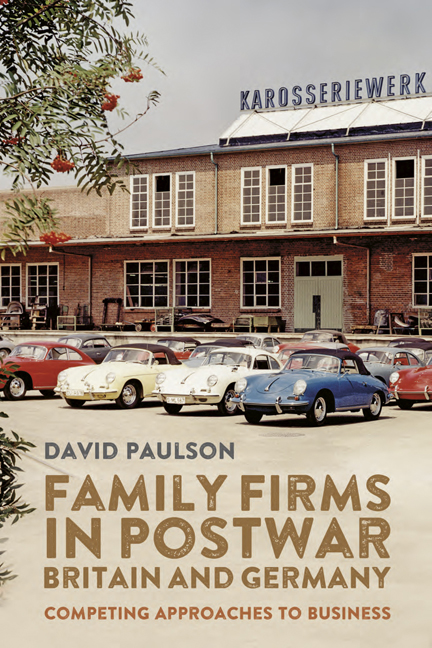2 - Culture, Community, and Continuity
Published online by Cambridge University Press: 10 January 2024
Summary
In this chapter we look at some of the cultural and environmental influences on businesses and their leaders, and consider leaders and their firms within their local networks. We also review the challenge of succession, critical to the generational continuity that has been identified as a core element of Mittelstand and family-business values.
Regions, Clusters and Networks
In a study which examines activity in two distinct regions, it makes sense to start with understanding what impact location and surrounding business ecosystems had on the conduct of business. Since the economic collapse of the 1980s, scholars have tried to explain the West Midlands’ economic decline and the ongoing difficulties of reviving its fortunes. From the Industrial Revolution until the decline in manufacturing which accelerated under the Thatcher government after 1979, the region was dynamic and entrepreneurial: in 1955, for example, the MP for Wednesbury urged the government not to impose credit controls which would hurt the ten thousand small manufacturing businesses in the surrounding Black Country. The various districts of Baden-Württemberg were similarly vibrant, sustaining high levels of small-business activity after the Second World War as they had done for a century or more before it. But why should two distinct regions each provide such fertile ground for growing businesses? Clues can be found in the work of economist Alfred Marshall, who at the turn of the twentieth century had identified the advantages of regionally specific business activity. Firms stay where their “good work is rightly appreciated”, new ideas are shared and improved, and subsidiary trades support further business development. Skilled labour is readily available: in regions where industries are the same or similar, businesses will cluster together where they think there are skilled staff wanting to join them, and skilled workers will use improving transportation to wherever there are the most employment opportunities. Marshall cautioned, however, against over-specialisation within a single district, which invites companies there to fall victim to any disruption to supply or demand. This was a risk then as it remains today: should local businesses become increasingly expert in a single product, developing a technology-specific ecosystem in which entrepreneurs successfully trade off local competition against mutually reinforcing sector advancement?
- Type
- Chapter
- Information
- Family Firms in Postwar Britain and GermanyCompeting Approaches to Business, pp. 28 - 37Publisher: Boydell & BrewerPrint publication year: 2023

